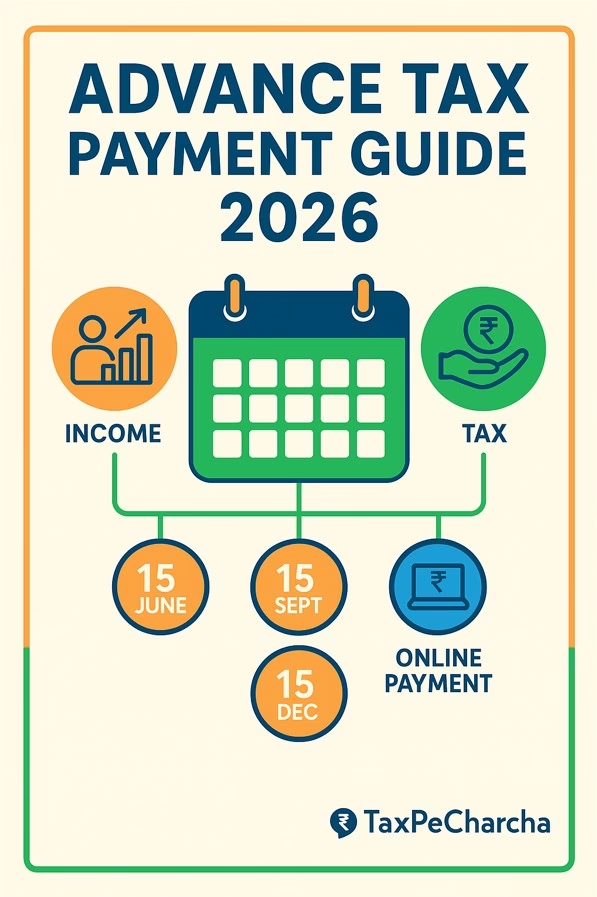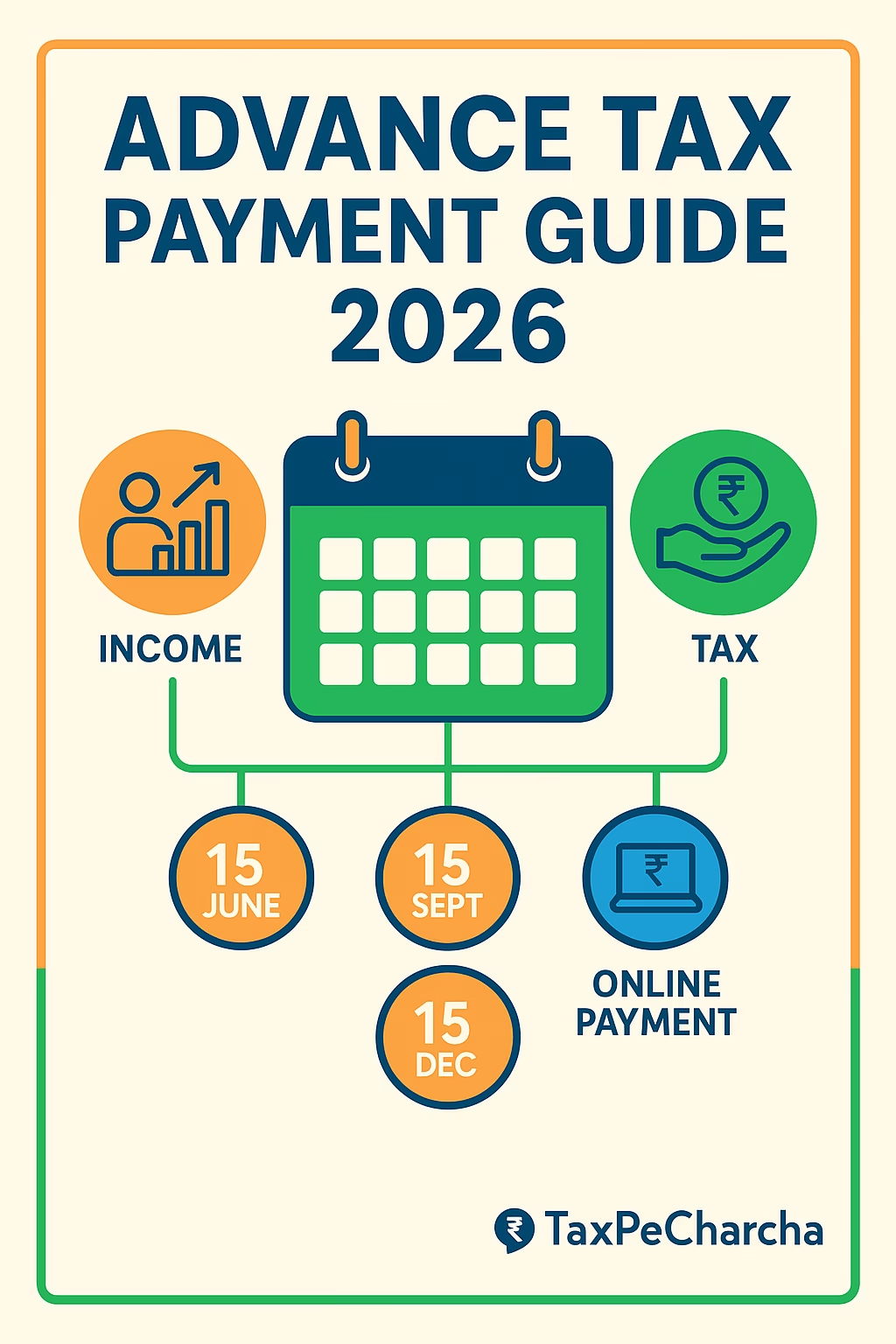
Advance Tax Payment Guide 2026: Due Dates, Calculation & Tips
Advance tax is a crucial aspect of tax compliance in India. If your estimated tax liability exceeds ₹10,000 in a financial year, you’re required to pay advance tax in installments. This guide provides a comprehensive overview of advance tax for the Financial Year 2025-26 (Assessment Year 2026-27).
What is Advance Tax?
Advance tax, also known as “pay-as-you-earn” tax, is the income tax paid in installments throughout the year instead of a lump sum at the end. This system ensures a steady inflow of revenue for the government and helps taxpayers avoid a large tax burden at the end of the financial year.
Who Should Pay Advance Tax?
You are required to pay advance tax if:
- Your estimated tax liability for the year exceeds ₹10,000.
- You have income other than salary, such as business income, capital gains, or interest income.
Note: Senior citizens (aged 60 years or above) are exempt from paying advance tax if they do not have business income.
Advance Tax Due Dates for FY 2025-26 (AY 2026-27)
The due dates for advance tax payments are as follows:
| Installment | Due Date | Percentage of Total Tax Payable |
|---|---|---|
| 1st | 15th June 2025 | 15% |
| 2nd | 15th September 2025 | 45% (cumulative) |
| 3rd | 15th December 2025 | 75% (cumulative) |
| Final | 15th March 2026 | 100% |
Important Note: If the due date falls on a Sunday or public holiday, the payment can be made on the next working day without attracting any penalty. For instance, if June 15, 2025, falls on a Sunday, the payment can be made on June 16, 2025, without any penal interest.
How to Calculate Advance Tax
To calculate your advance tax:
- Estimate your total income for the financial year, including salary, business income, capital gains, and interest income.
- Apply the applicable tax slabs to determine your total tax liability.
- Subtract any TDS (Tax Deducted at Source) already deducted from your income.
- Deduct eligible exemptions and deductions, such as under Section 80C, 80D, etc.
- Pay the remaining tax liability in installments as per the due dates mentioned above.
How to Pay Advance Tax Online
You can pay advance tax through the Income Tax Department’s e-filing portal:
- Visit the Income Tax e-Filing Portal.
- Log in using your PAN and password.
- Navigate to the ‘e-Pay Tax’ section.
- Select ‘Advance Tax’ and choose the appropriate assessment year (2026-27).
- Choose the payment mode (Net Banking, Debit/Credit Card, UPI, etc.).
- Complete the payment and note down the Challan Identification Number (CIN) for future reference.
Penalties for Non-Payment or Late Payment
If you fail to pay advance tax or make a late payment, you may be liable to pay interest under the following sections:
- Section 234B: Interest at 1% per month if 90% of the total tax liability is not paid by the end of the financial year.
- Section 234C: Interest for deferment of advance tax installments.
It’s advisable to pay advance tax on time to avoid these penalties.
Tips to Manage Advance Tax Payments
- Estimate your income accurately: Regularly update your income estimates to avoid underpayment.
- Keep track of deductions and exemptions: Ensure you claim all eligible deductions to reduce your tax liability.
- Maintain a record of all payments: Keep a record of all advance tax payments and TDS certificates for filing your Income Tax Return.
- Consult a tax professional: If your income is irregular or complex, consider seeking advice from a tax professional to manage your advance tax payments effectively.
Conclusion
Paying advance tax is an essential part of tax compliance in India. By understanding the due dates, calculation methods, and payment procedures, you can manage your tax liabilities efficiently and avoid penalties. Stay proactive and plan your advance tax payments to ensure a smooth financial year.


trusted cannabis store online with global delivery options